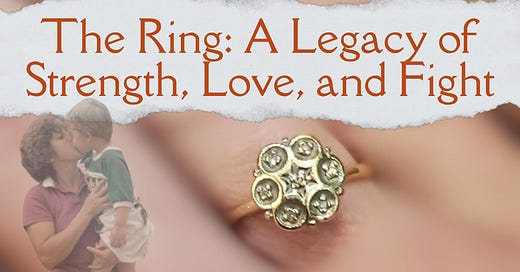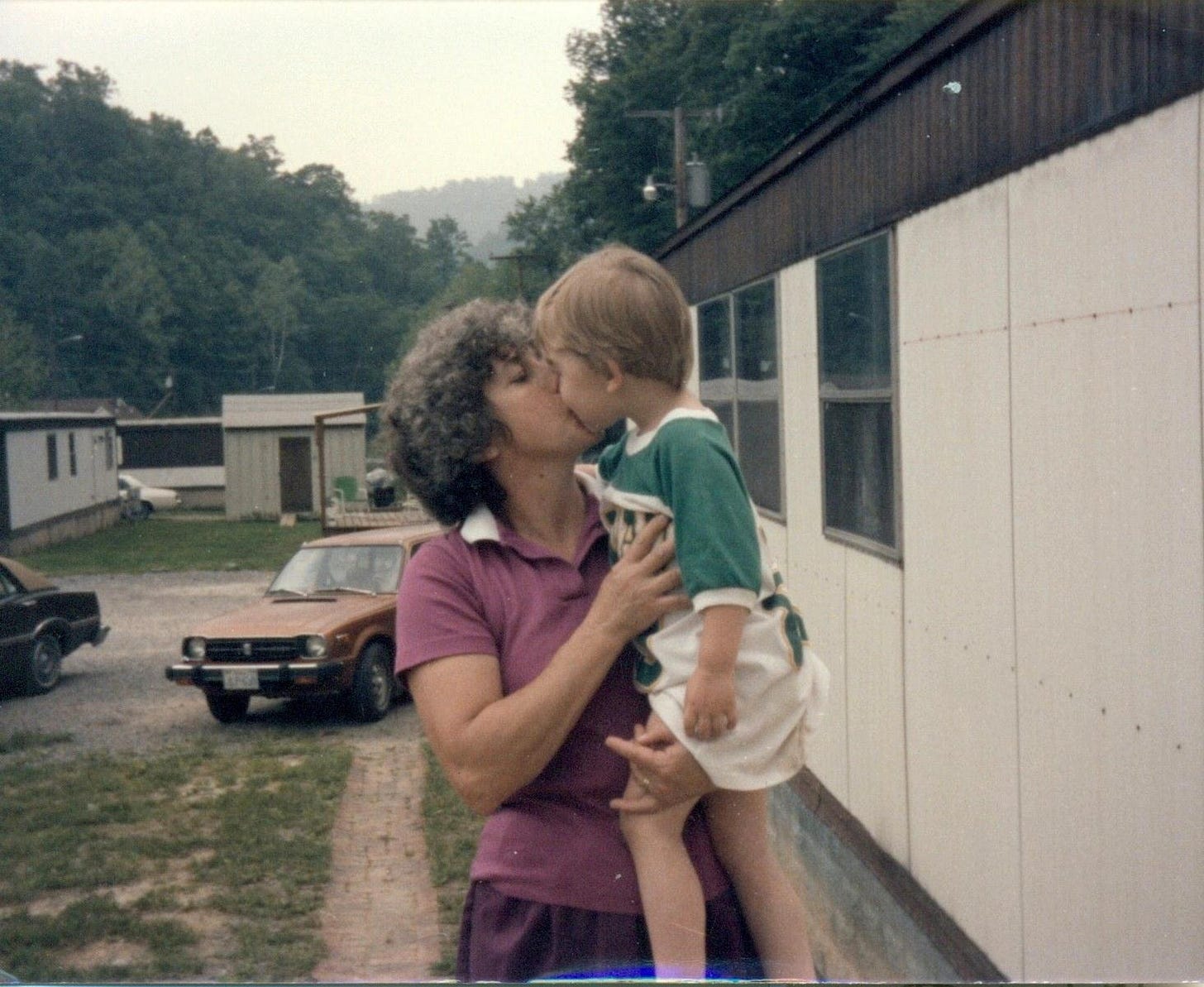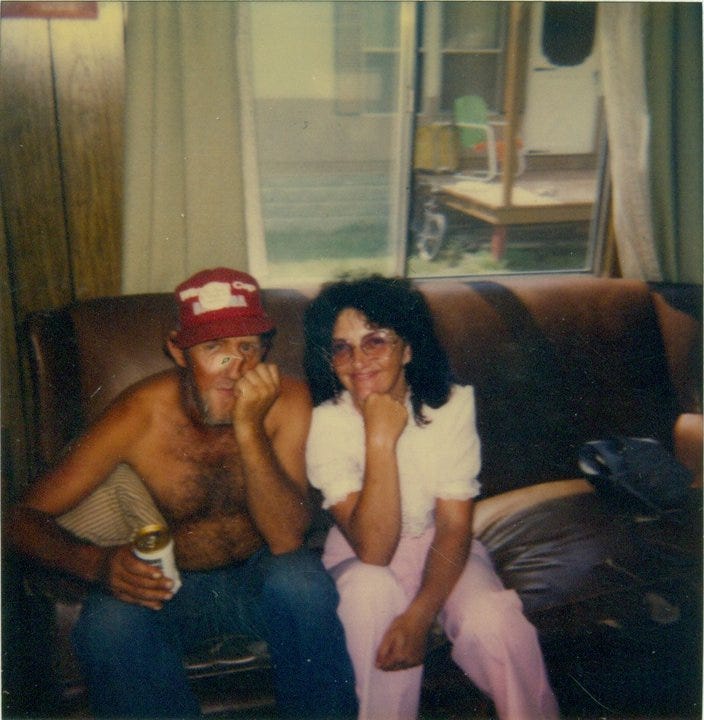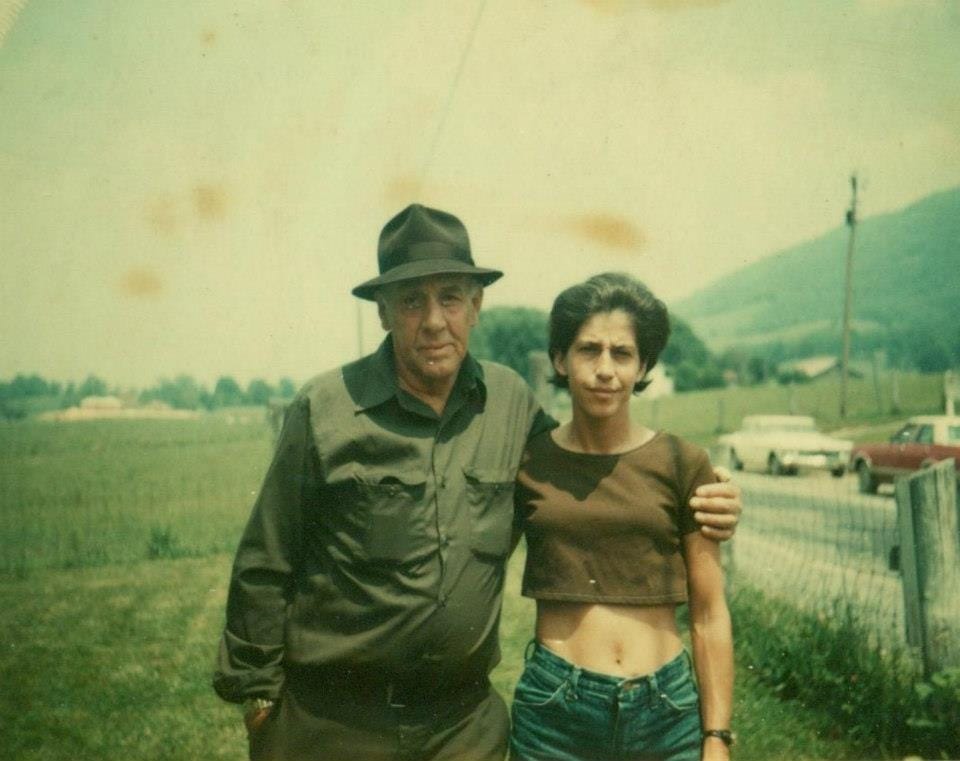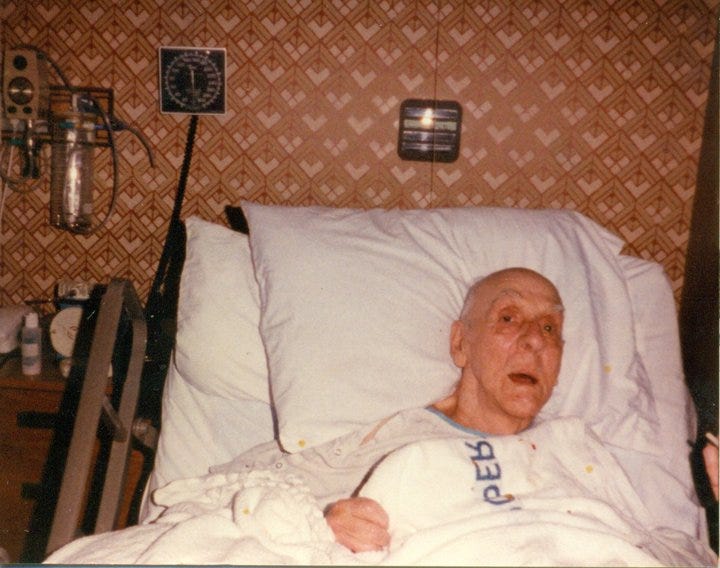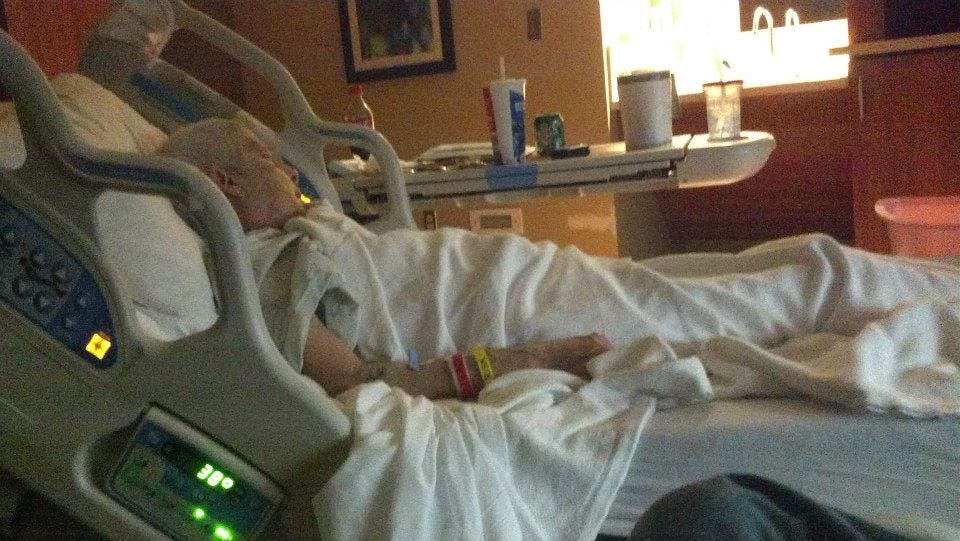A tiny, seemingly insignificant detail accompanied me throughout my campaign: a simple ring. It may have gone unnoticed by most, but for me, it carried immeasurable significance. This ring, worn during pivotal moments of my journey, belonged to my grandmother, Lila Kinder—a woman whose legacy is etched into every fiber of who I am.
This small token was with me when I voted for myself for the first time in the Democratic primary, during key campaign events, and on election night. Though I wanted to wear it when voting in the general election, I’d put it away for safekeeping—so safe that I couldn’t find it when the time came. Yet, its symbolic weight remained constant, a reminder of the strength, grace, and resilience my grandmother embodied.
A Lifelong Anchor
From the day I was born, my grandmother, Lila, played a unique role in my life. She wasn’t just my grandmother; she was my friend, confidant, and a second mother. Her steady presence became even more vital during my turbulent teenage years, a time complicated by my parents’ divorce and the usual struggles of growing up. Through it all, she stood as an unshakable foundation—a reminder of resilience, love, and unrelenting determination.
In honor of this remarkable woman, I want to share a glimpse into the life and character of someone who had the most profound influence on me and continues to be my model for how to live and fight.
Lila had already weathered the storms of her own divorce by the time I was born. While I won’t dive too deeply into the family’s private matters, some details are essential to understanding her incredible character. My grandfather’s affair during their marriage led to the birth of two children. The relationship eventually ended, but my grandmother’s reaction to these events revealed the true depth of her grace and strength.
Rather than harbor bitterness or resentment, Lila befriended the woman with whom my grandfather had the affair—Patsy—and took an active role in the lives of the children her ex-husband fathered. More than that, she extended her love and support to Patsy’s children from a previous relationship, creating a lasting bond that would redefine what family meant.
Patsy became a near-constant presence in my grandmother’s life, and together they forged a unique and unexpected friendship. In their early days as friends, they’d hit the local honky-tonks for girls’ nights out, laughing and dancing their troubles away. This wasn’t just a temporary truce; it was a lifetime commitment.
Lila celebrated the milestones of Patsy’s children as if they were her own. She was there at their graduations and other major life events, making it clear that love had no boundaries in her world. And when Patsy faced her final battle with cancer, my grandmother was right there in the hospital—comforting her, and supporting her children through those last moments.
Her actions weren’t just a lesson in forgiveness; they were a masterclass in what it means to truly love. For Lila, family was not confined to blood relations or past loyalties—it was about showing up, even when it wasn’t easy, and choosing to love fiercely and without reservation.
Unyielding Devotion
Family was the heart of everything for my grandmother, Lila, and her loyalty to those she loved was unshakable. Even after my parents divorced, she made it clear that my father was forever a part of her family. He was always welcome in her home, and no holiday passed without an invitation extended to him. In her eyes, he would always be her son-in-law. Lila had her own unspoken code, and it was reminiscent of something you might find in a mafia tale—but much kinder: it was easy to join her family, but once you were in, there was no leaving.
Her love was strong, but her protectiveness made her a formidable presence. If someone threatened her family, you knew it immediately. Lila didn’t mince words, and she didn’t hide her feelings. Her disdain, when warranted, was direct, often punctuated by her favorite epithet: “son of a bitch.” She wielded it with a mix of humor and absolute conviction, as in, “that old son of a bitch,” a phrase delivered with all the sharpness and wit that defined her.
This fierce loyalty extended to her role as a caregiver, a responsibility she embraced with relentless dedication. From the late 1980s into the mid-1990s, her father—my great-grandfather—lived with her as he battled Alzheimer’s. His decline was heartbreaking. Eventually, he lost the ability to stand or walk, but his own stubborn streak never waned. Their shared strength of will sometimes clashed, but Lila faced it head-on, rejecting the advice of family members who suggested placing him in a care facility. She refused, instead reorganizing her entire life around his needs.
As his condition worsened, his hospital stays became longer. In his final months, he was hospitalized for what felt like an eternity, yet Lila’s devotion never wavered. Not a single day passed without her by his side. I remember coming home from school and heading straight to the hospital with her. Together, we’d sit in his room until visiting hours ended, only to repeat the routine the next day. My afternoons were spent doing homework at the small hospital table while my grandmother watched over him. I became an expert on where to find the best vending machines in the hospital, a small silver lining to those long, emotional days.
One memory stands out vividly. During this time, the movie Beethoven had just come out. We must have watched it on the hospital TV a dozen times. It became a strange, comforting backdrop to those days, so much so that I could recite entire scenes from memory. That rhythm of hospital visits, homework, vending machines, and the gentle comedy of a mischievous St. Bernard became part of our shared experience.
A Fighter Until the End
When my grandmother Lila started having health issues, none of us were prepared for the long road ahead. The first major challenge was her diagnosis of cervical cancer. After enduring rounds of radiation and a complete hysterectomy, she made a remarkable recovery. For a time, life returned to a version of normal, and she was glad to get back to work.
But normalcy was fleeting. Breathing issues soon surfaced, first misdiagnosed as chronic bronchitis. When the treatments didn’t help, further tests revealed the truth: Stage 4 lung cancer, which had already spread. I remember vividly the day we drove to get those test results. She insisted we stop at Hardee’s for her favorite biscuits and gravy on the way and fed the ducks in the parking lot as though it were just another day.
The doctor’s words were devastating, but you wouldn’t have known it by looking at her. On the ride home, we didn’t talk much. She asked me to stop by the diner where she worked, and we sat in a booth while she had coffee. When a waitress and friend of hers asked about the results, she answered with a calmness that felt surreal: “He said I’ve got cancer.”
Her friend, visibly shaken, said she would have gone home and cried if she had received such news. My grandmother’s response was pure Lila: “I could go home and cry, but I’d still have cancer.”
Over the next year, she endured every battle cancer could throw her way: chemotherapy, surgeries, blood transfusions, remission, relapse, and even experimental treatments that ultimately failed. She faced each challenge head-on, refusing to let the disease dictate her life. I was with her at her final oncology appointment, where the doctor gave her grim news. The cancer had returned, more aggressive than ever. He gently suggested avoiding further chemotherapy, explaining it might only make her final days more painful.
Her response? “So, when do we set up my next chemo?”
Even the doctor seemed stunned but scheduled the appointment for a month out—a date I suspect he chose knowing she wouldn’t make it that far. For his compassion, I am grateful.
Not long after, her oxygen levels plummeted, and I called an ambulance. Her first evening in the hospital became a family reunion of sorts. Her room overflowed with relatives, laughter, and love. For a moment, it felt like the Lila of old had returned—the humor, the sarcasm, the sharp wit. She was vibrant, more alive than she had been in months.
As the night wore on, she grew tired, her mind clouded by exhaustion. I leaned in to kiss her forehead and whispered, “I love you.” She opened her eyes just enough to reply, “I love you too … but y’all are getting on my nerves.” That was Lila—honest, funny, and unapologetically herself, even in the face of confusion.
The next day, she slipped into a coma. For several days, we waited, holding vigil by her bedside. The end came while I was briefly in the hallway, making a call. Relatives called me back just in time. Holding her left hand, while my mother held her right, we surrounded her—her son, my two aunts, my younger brother, and her beloved brother Tommy—as she took her final breath.
In that moment, I felt the immense weight of losing someone so integral to my life, but also the incredible honor of being by her side until the very end.
Her Legacy Lives On
Twelve years have passed since I said goodbye to my grandmother, but her legacy continues to inspire me every day. When faced with challenges, I find myself asking, “What would Lila do?” The answer is always clear: she’d fight like hell, love unconditionally, and never give up.
The ring I wore throughout my campaign may seem like just a piece of jewelry, but it symbolizes so much more. It’s a reminder of the courage it takes to face life’s adversities, the importance of forgiveness, and the power of love. Lila Kinder was a force of nature, and I am endlessly grateful to carry her legacy forward.
Life was never easy for my grandmother, yet she never let that harden her heart or diminish her joy. She taught me that while life can be brutal, it is also breathtakingly beautiful—and worth fighting for. Everyone should be so lucky to have a Lila in their life. I know I’ll spend the rest of mine striving to live as she did.


